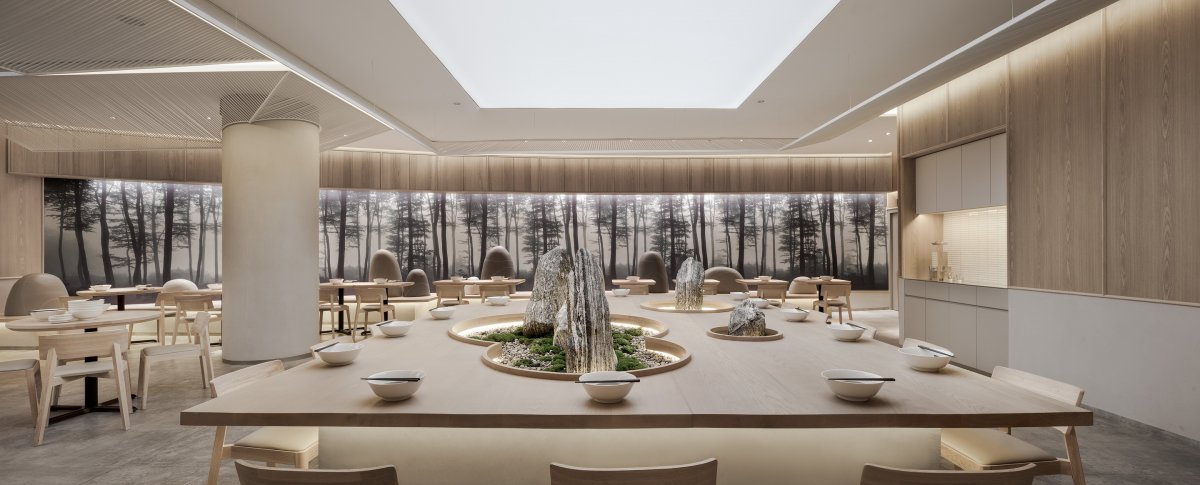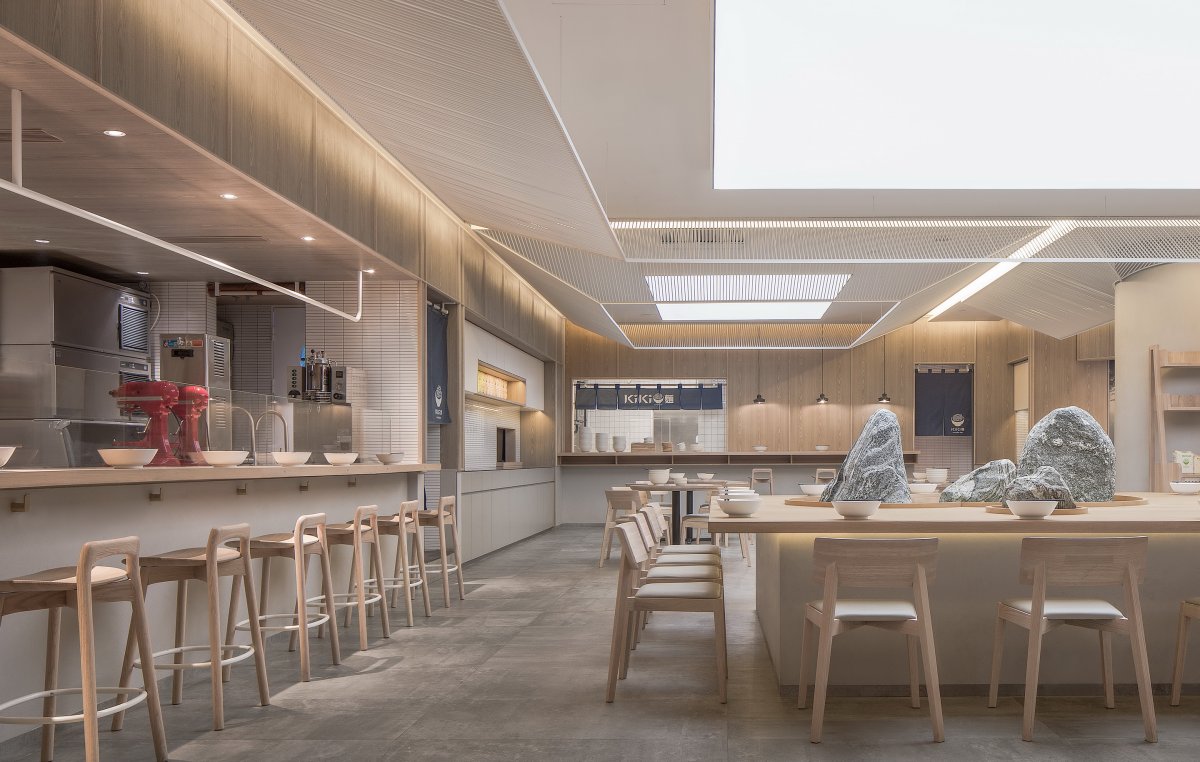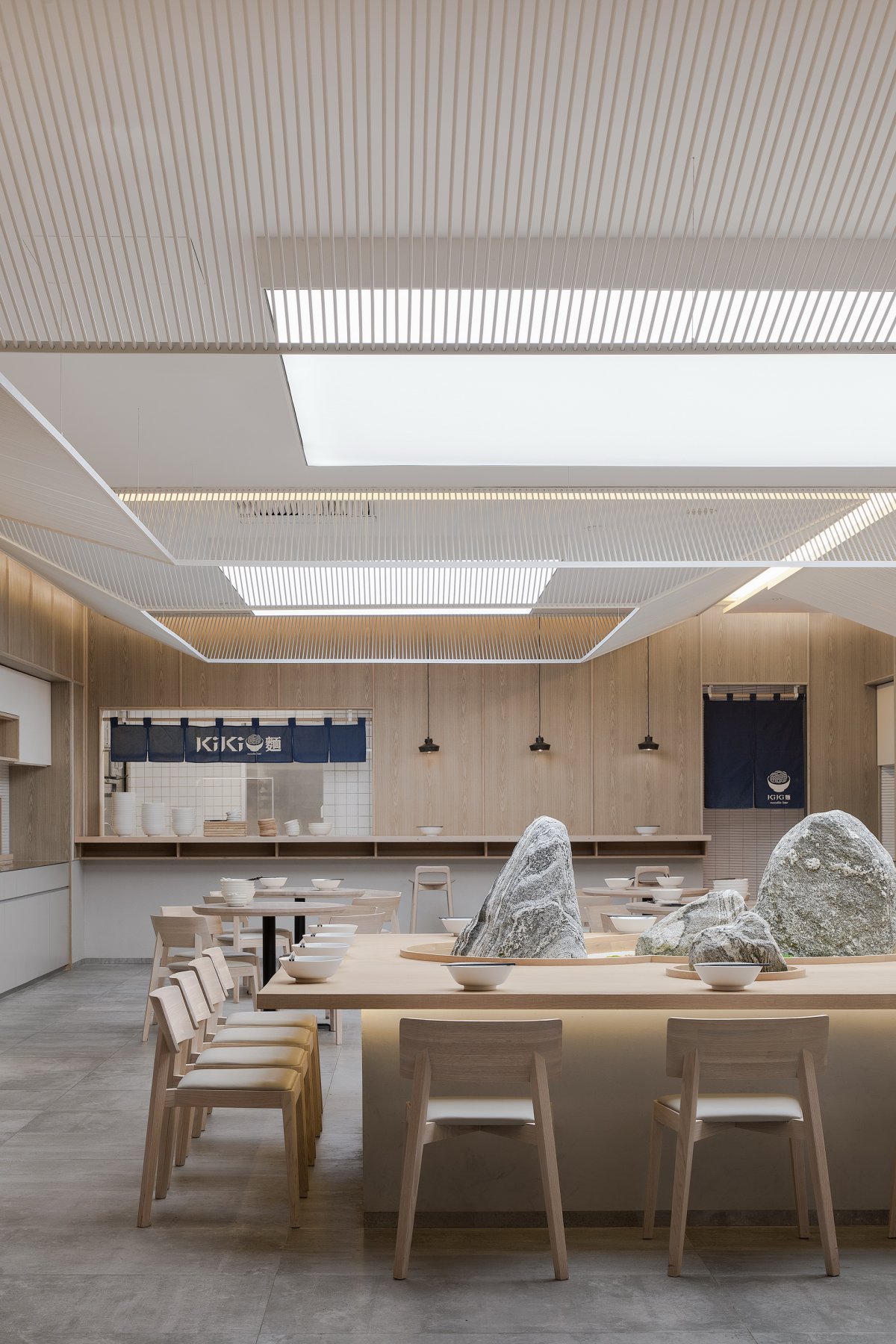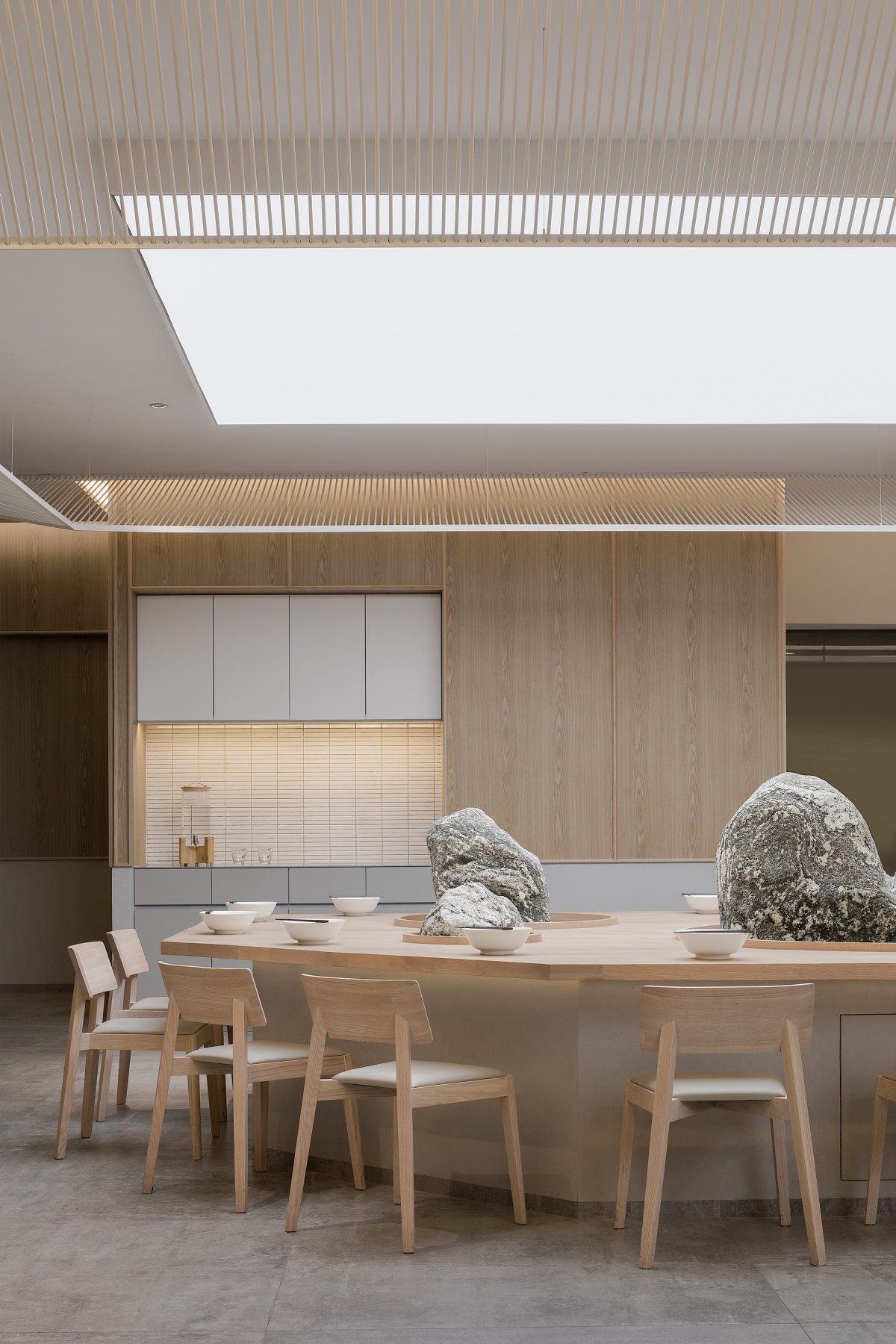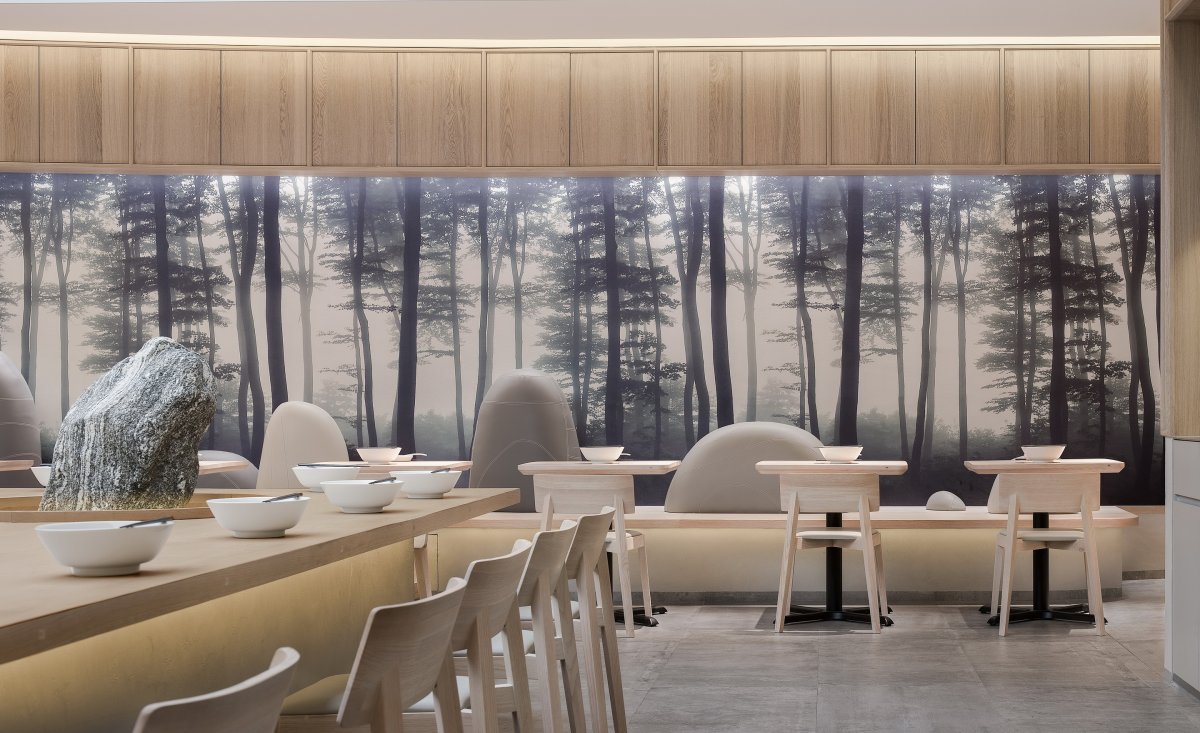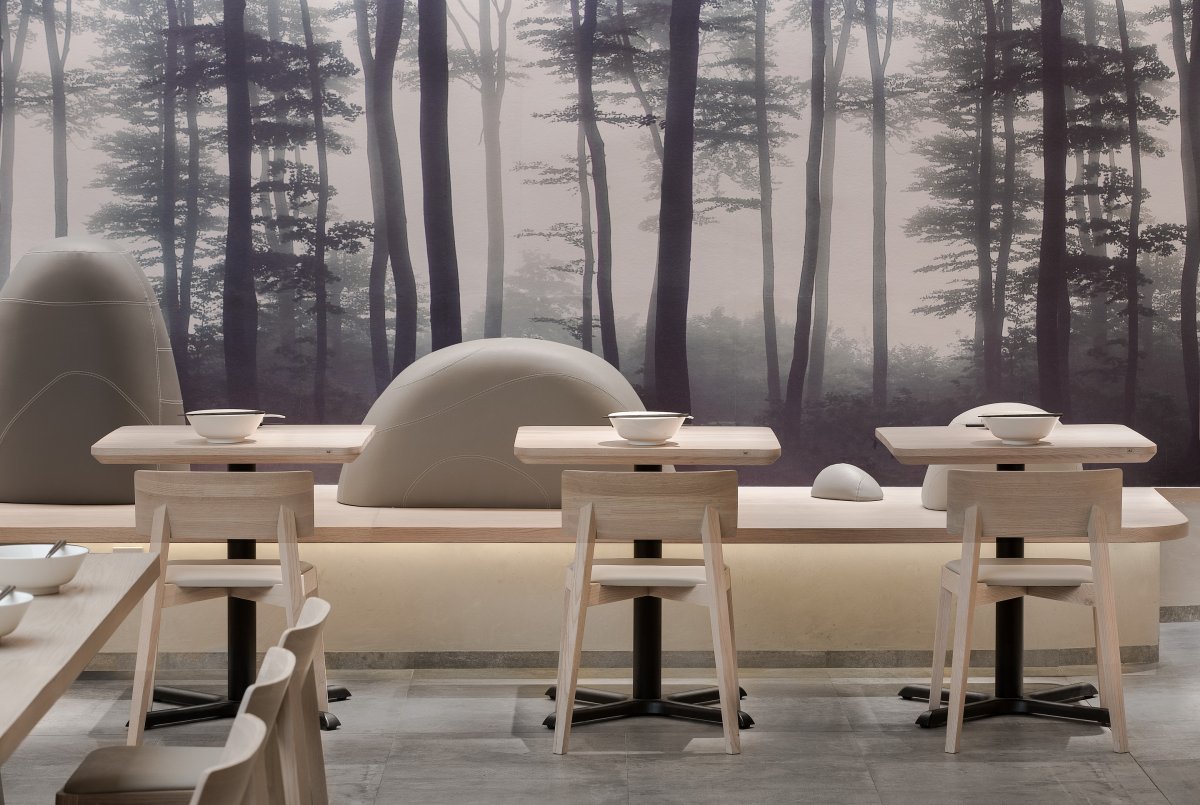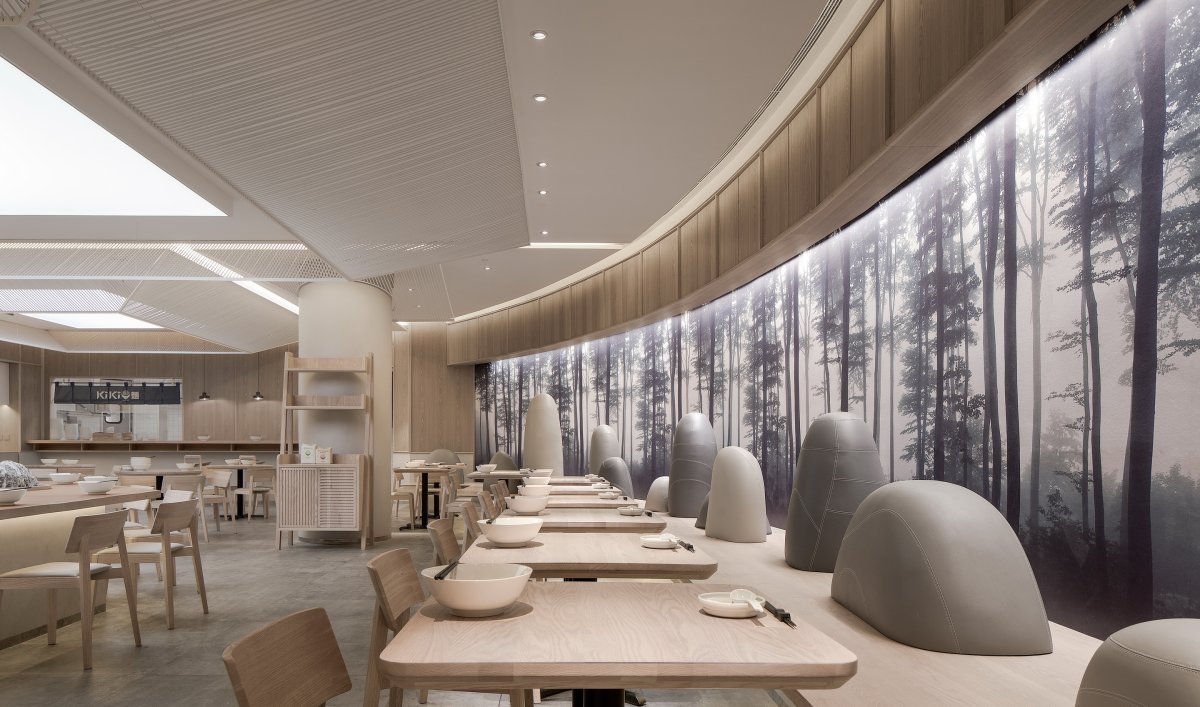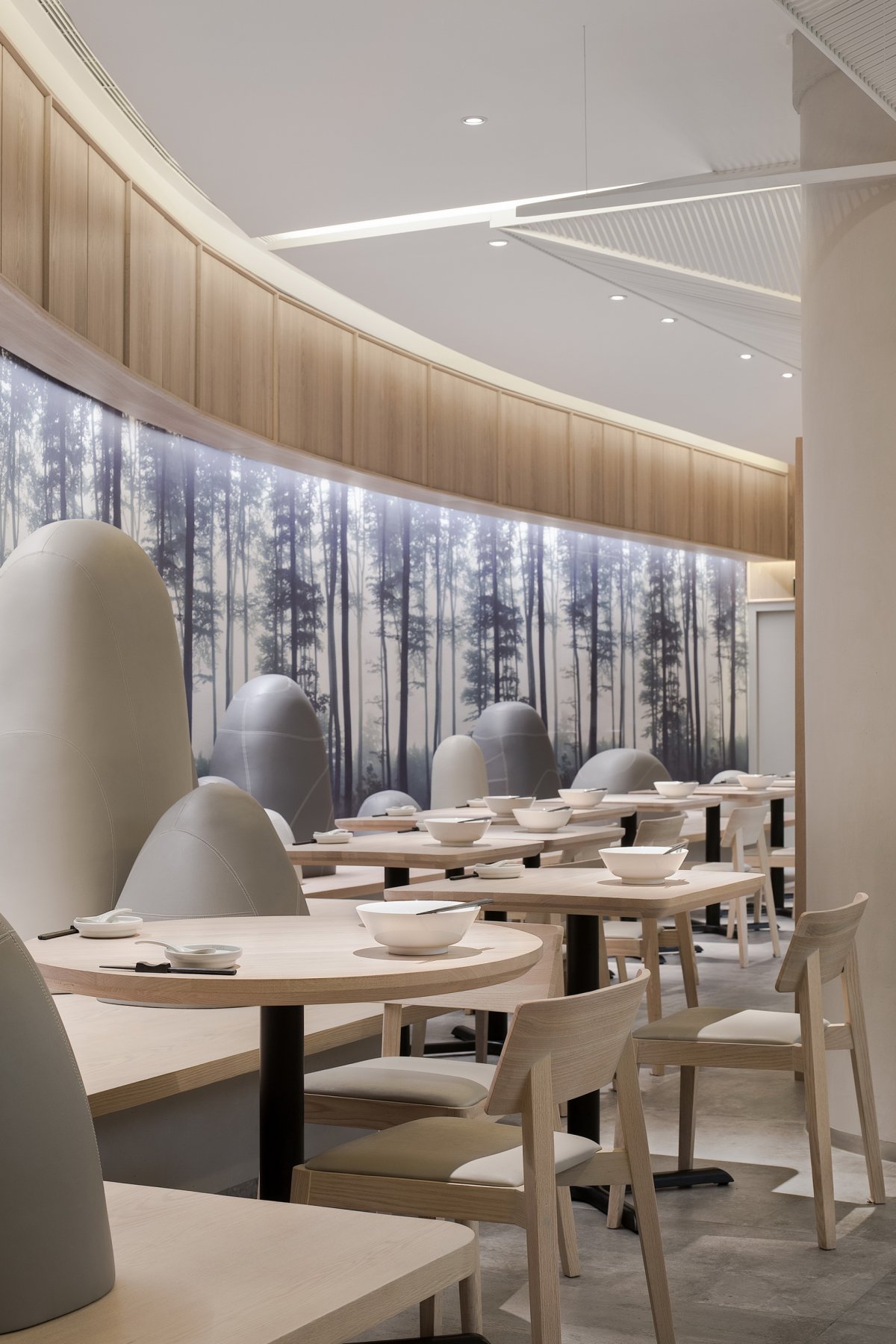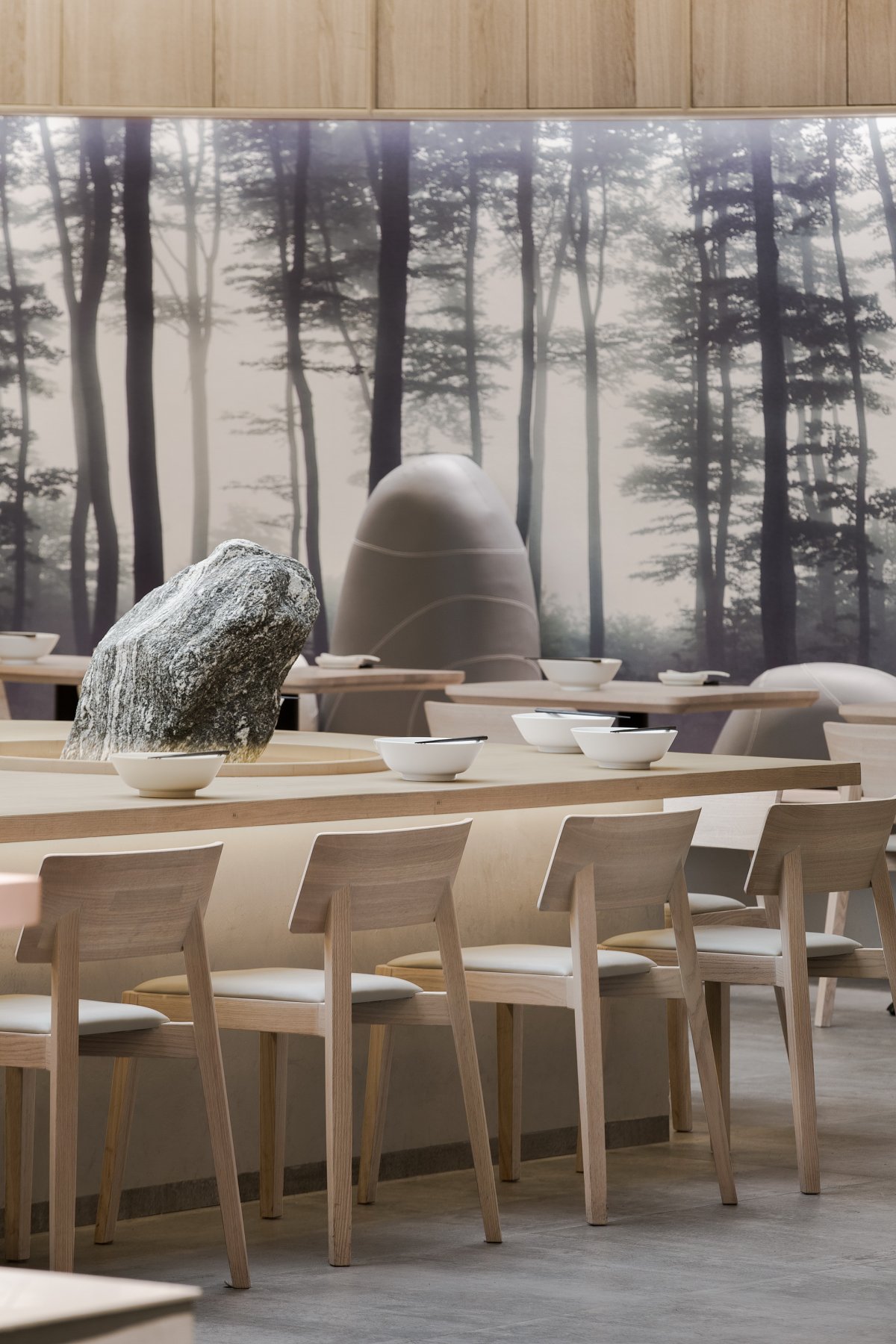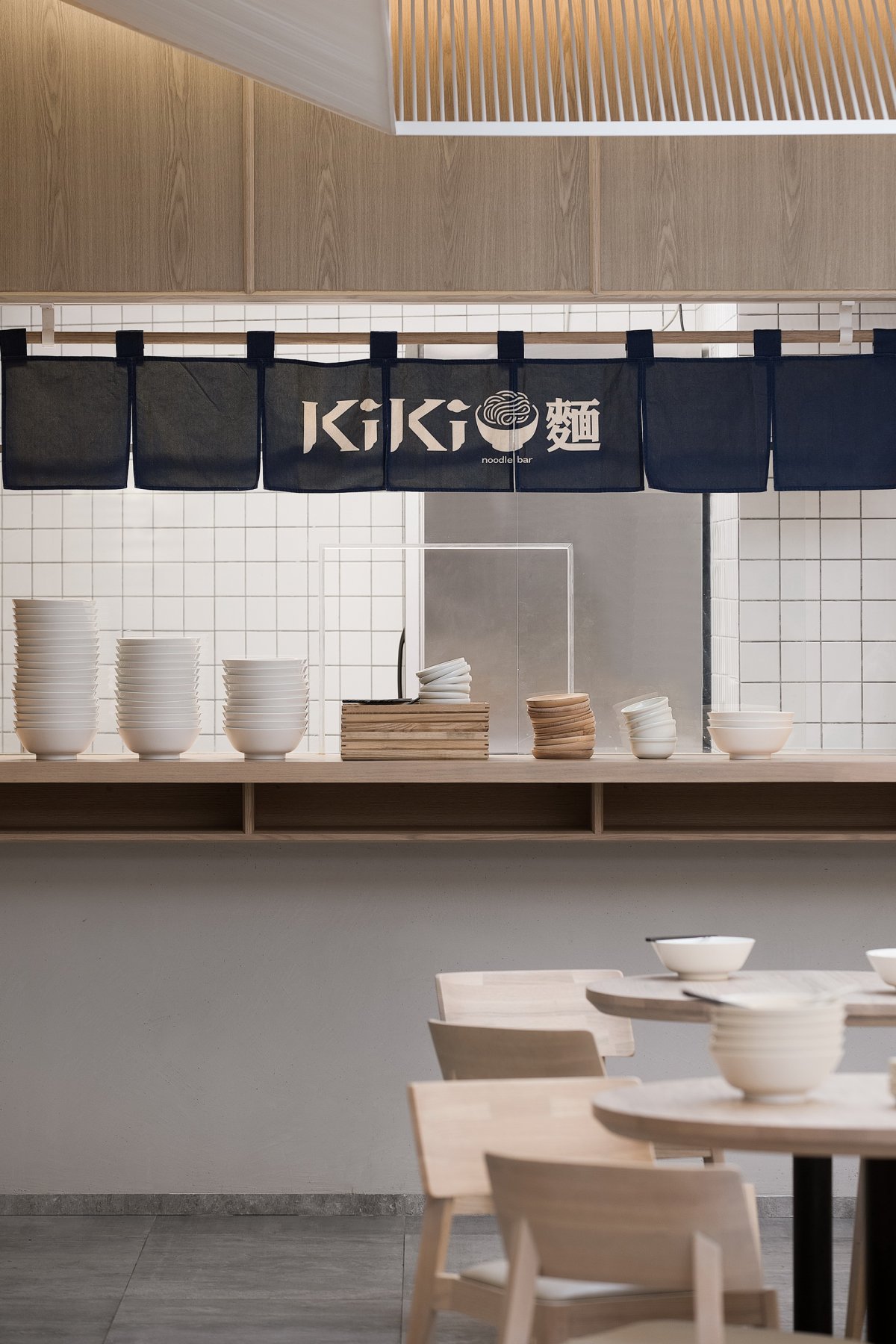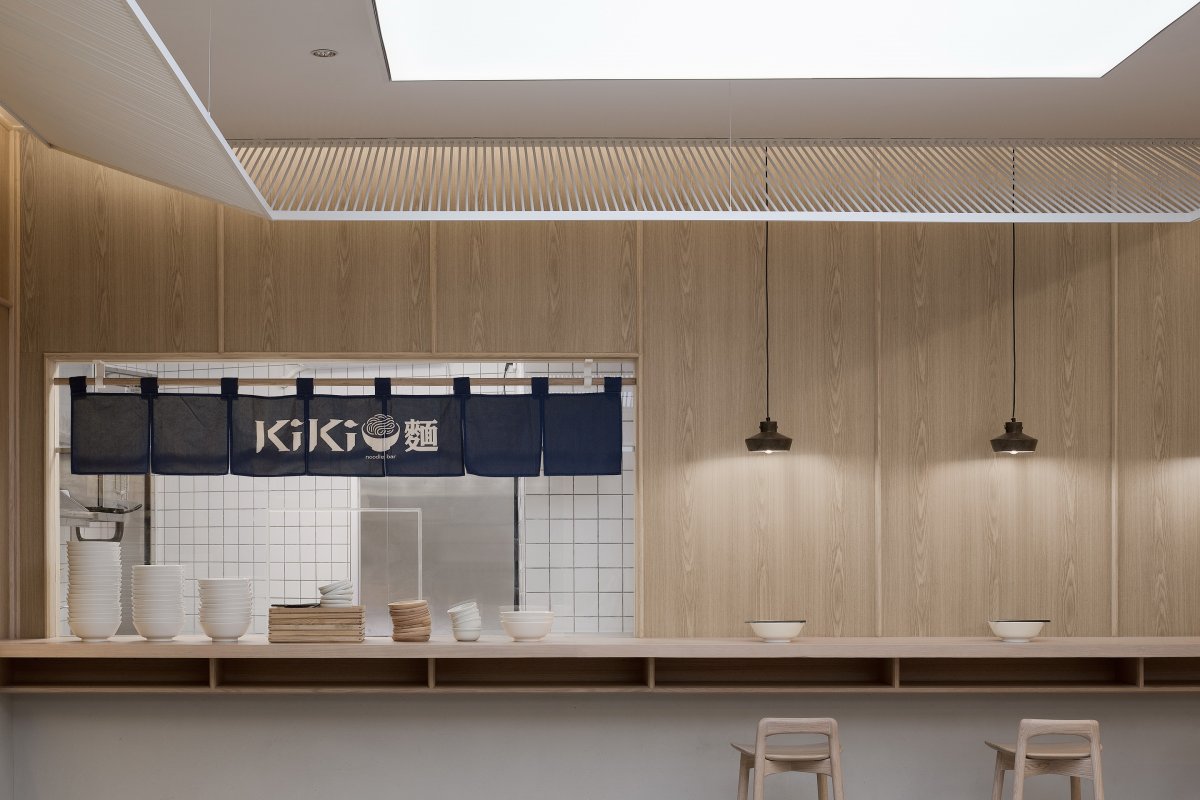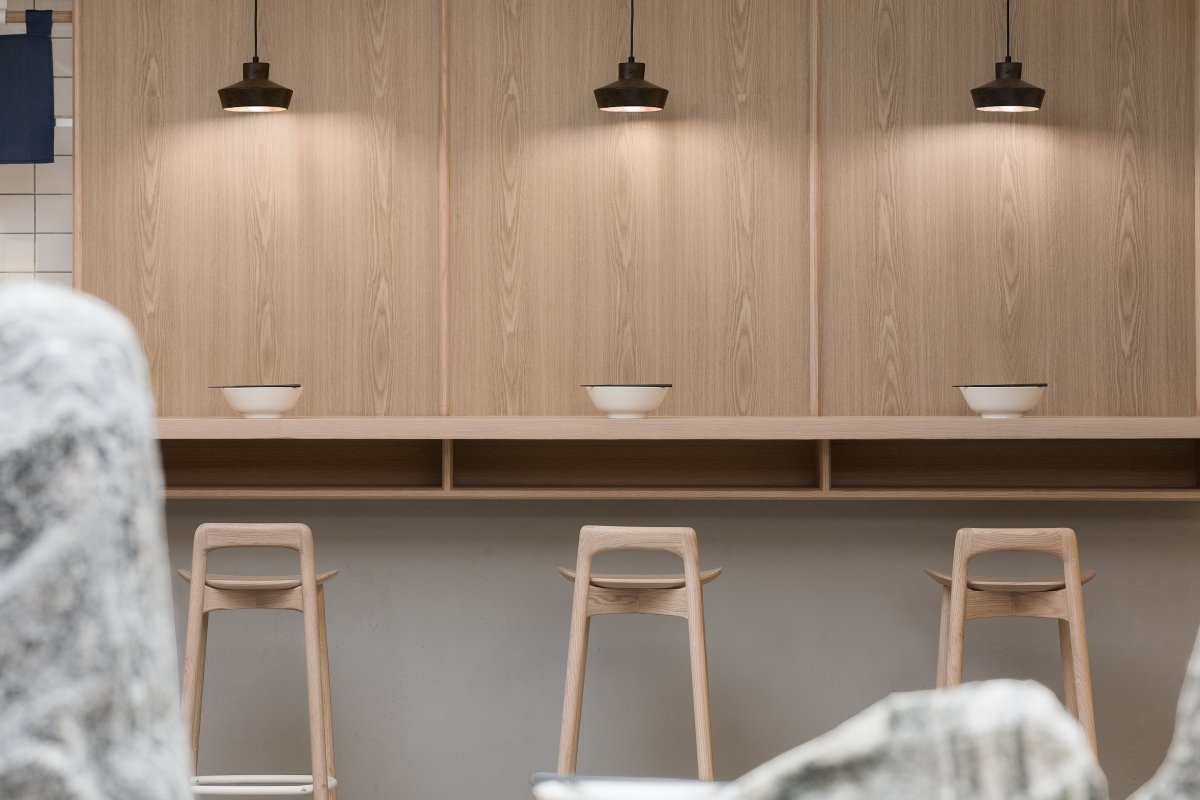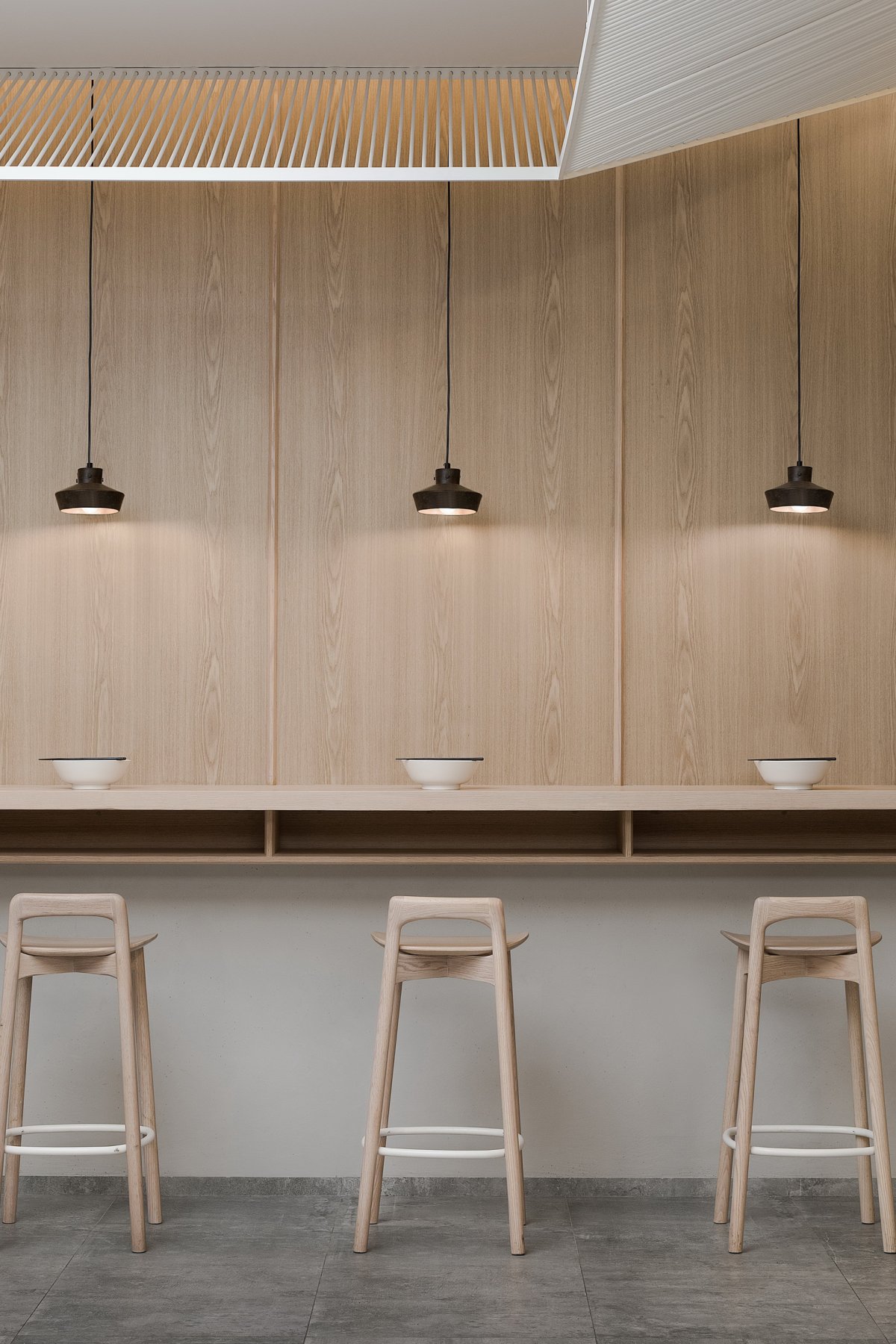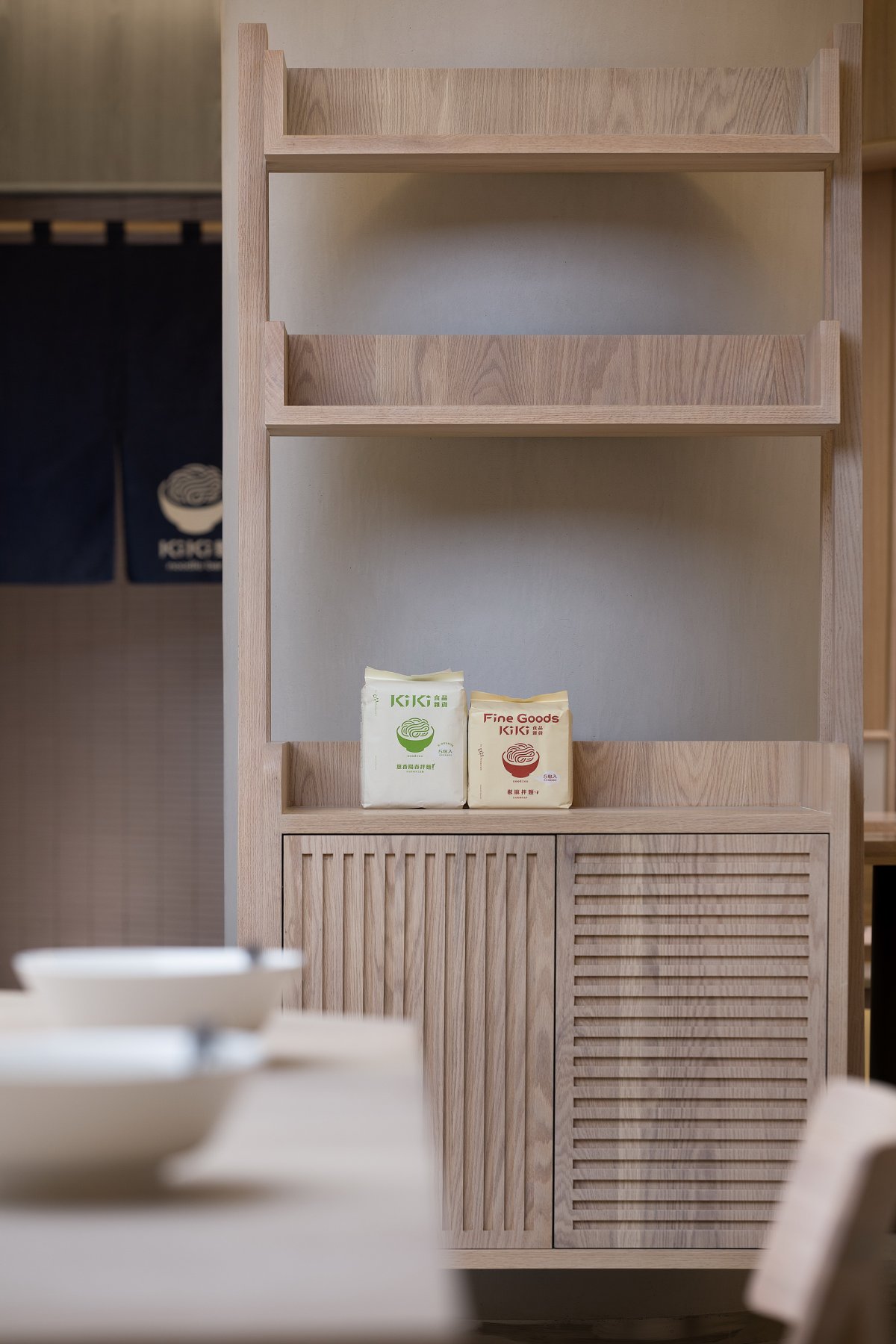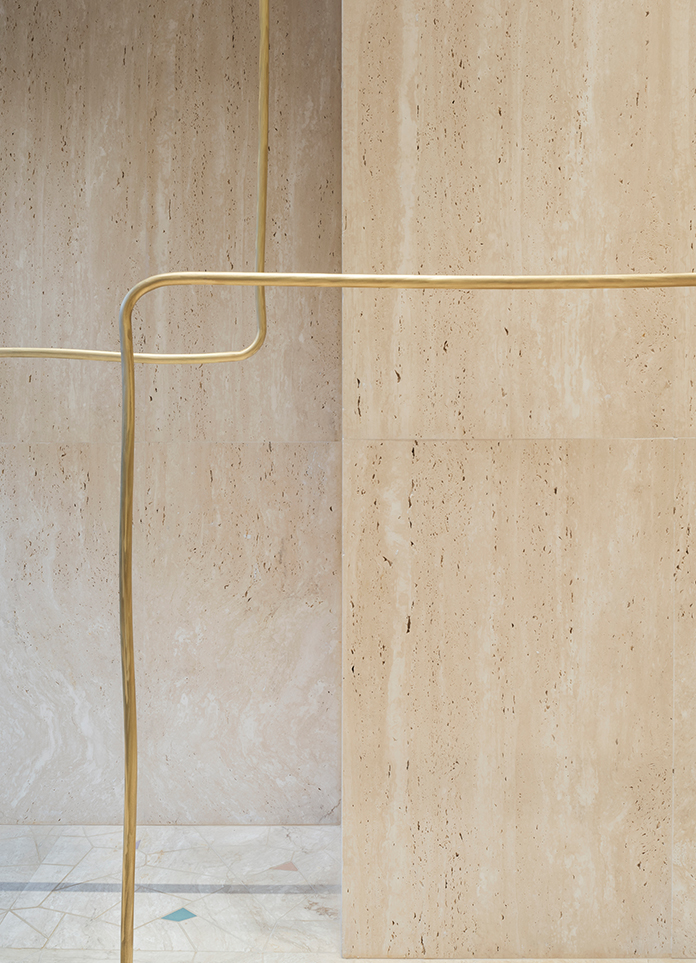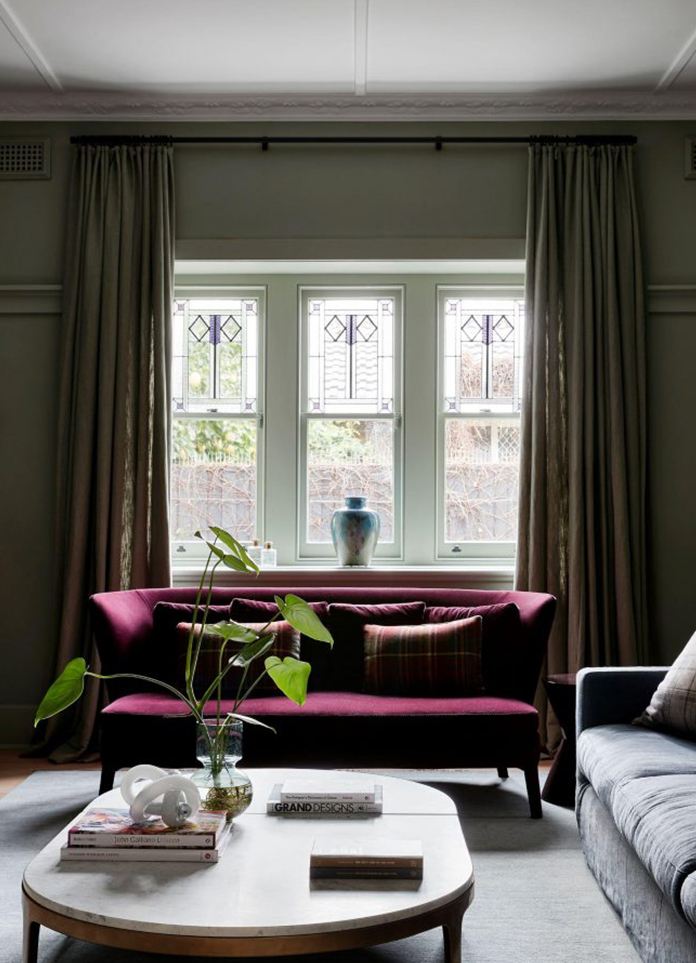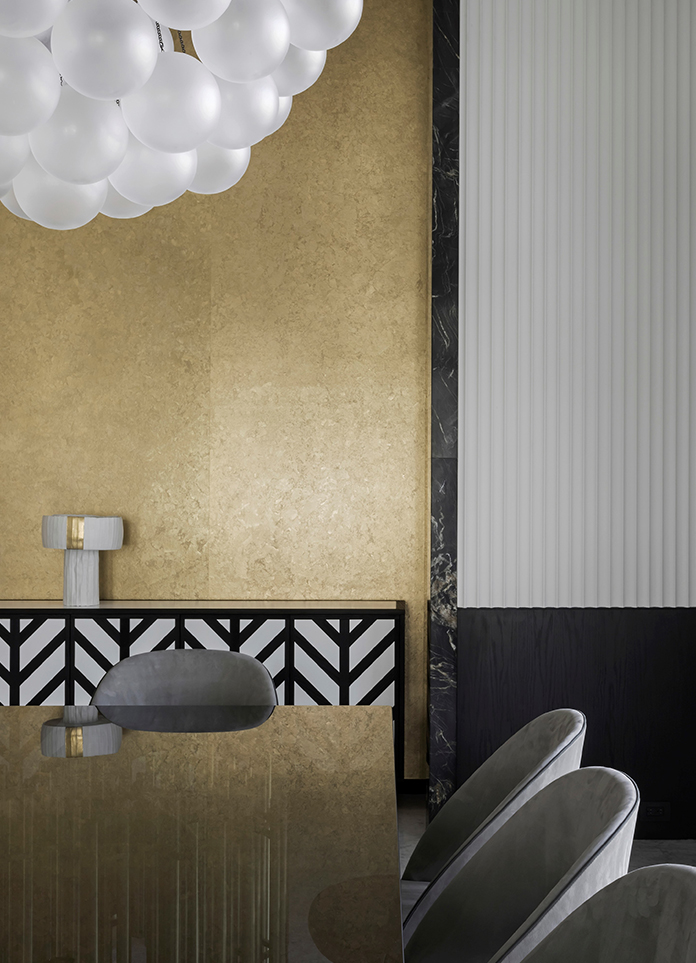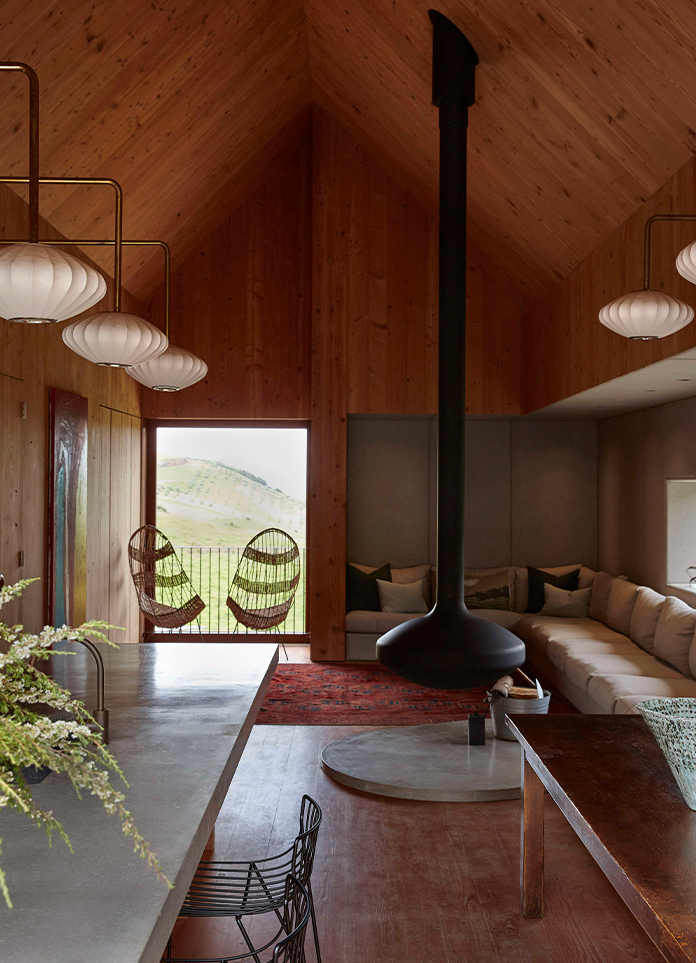
When passing through the KIKI noodle house the Hong Kong Plaza in Shanghai, you notice the brand“KIKI Noodle” with the actor Shu Qi is “big fans”, which attracts the attention of many people. Once you find out more, this is the noodle house of Shu Qi.. The ancient Taiwan Tainan handmade sun-dried noodle is the biggest feature of this noodle bar.
In front of the KIKI door, the first thing to welcome you is the lightly sloping white eaves, the warm and simple KIKI tea bar and the old Taiwanese street cooking cart parked at the entrance. When you walk closer, you will see a variety of products from KIKI in the trolley. It gives you an impression that in the next second, a Taiwanese aunt with a Hakka accent will look up from behind the cart and greet you, and ask you what you want to buy. Once you walk in, you face the bright kitchen in the distance, The busy noodle chef concentrated on cooking behind the curtains. The steamy and busy figure is an indispensable part of the noodle restaurant.
It is worth mentioning that the design of the kitchen curtain is used from the first store in Taiwan. It represents the initial heart of KIKI. No matter where KIKI goes in the world, the most original one will always be the best, The original want of making the best noodles will not change. Take your eyes back to the dining area in front of you. The large bar table can accommodate nearly 20 people transforms the noodle bar into a shared space. The square shared table center is a carefully designed tiny landscape. Even if it is just for a bowl of noodles, the designer hopes to bring the soul to the quiet landscape. Looking up from the bar table, the shape of the ceiling is like the eaves and patios of traditional buildings, and then You look at the misty walls in the distance and suddenly understand. This space is a place where people sit in the courtyard below the patio and quietly stare at the distant scenery. Therefore it should have been a lively and crowded noodle bar designed to be such a spacious atmosphere, but it is just a place where people who want to come and go here to see the mountains and rivers in front of them, "the mountains beyond the courtyard", to the soul, a short section of the emptiness.
Going forward from the bar table is the sales area of KIKI products, so that customers can not only eat a bowl of steaming Tainan handmade sun-dried noodles with different tastes, but also satisfy more of those who want to cook their own dishes. If you bypass the bar table, go inside and it is a pleasant scenery. In front of the murals of the lush forest, there is a row of special decks. The row of "mountain stones” replaces the traditional sofa, and becomes the backrest of the deck. It echoes the forest behind it, creating an atmosphere. At the same time, in terms of function, this space is a curved surface, the designer will still maintain a curved surface effect visually, like the panoramic floor-to-ceiling windows, which will have a panoramic view, but in use, the deck layer is cascaded, a rectangular unit.
KIKI is like a "literary youth" in a noodle restaurant. It does not pursue the excitement and embarrassment. It wants to use a warm and quiet space to create a place for everyone who comes here to relax, even if it is only for a short-lived distraction. The urbanites who are in always in a hurry today are the kind that will appreciate such softness in the environment of the bar.
Kiki Noodle House is a brand from Taiwan, one of the owners is the Taiwanese actress Shu-Qi ( https://en.wikipedia.org/wiki/Shu_Qi ). The concept comes from traditional Taiwanese residence, the garden under the “sunroof,” hence you can see the white squares on top. We wish people can experience what it feels like to enjoy a delicious bowl of noodles in the courtyard underneath the eaves.
The idea is to use contemporary methods to interpret the spatial logic of traditional Taiwanese architecture. The two most important experiences come from when you look above the courtyard, at the sky frame and the roof eaves, and the other is the plant landscape seen from the courtyard.
- Interiors: Golucci Interior Architects
- Photos: Luluxi
- Words: Zhu Yuanxin Lee Chenan
